The Black Lives Matter protests of last summer saw businesses across grocery pledge serious action on inclusion – across race, gender and sexuality. So how have those pledges translated into action?
As protesters marched up and down the country to champion the Black Lives Matter movement, Co-op boss Steve Murrells made a hard-hitting statement. “We can’t go on like this,” he posted in a passionate Twitter thread in June. “A world where people are judged, discriminated against and die due to the colour of their skin is not the world I want, that any of us want.”
At the time, Britain was reeling from the initial impact of the pandemic. Food and drink businesses had gone into survival mode – with the focus shifting away from long-term goals towards keeping the shelves stocked and everyone safe. Issues such as diversity and inclusion inevitably slipped down the list of internal priorities for some. But Murrells was keen to stress that Co-op would maintain its commitment.
“The inclusive culture that we, together, are trying to build at the Co-op will only live through actions. Not words alone,” he argued.
But just how much action has the sector been able to take while fighting the pandemic? And what does a truly diverse organisation look like in 2021 anyway?
Even before Covid-19 hit, there was concern that progress on diversity was stagnating across the business landscape. A report by McKinsey last May, which analysed more than 1,000 large companies across 15 countries prior to the pandemic, found a divide in approach. While a third of the companies had achieved “real gains in top-team diversity” in the past five years, most had made little or no progress – or even gone backwards.
Its authors expressed fears that coronavirus could make the situation even worse. “In this challenging context, the task of fostering inclusion and diversity could easily take a back seat,” they warned.
Read more:
-
How can companies drive diversity and see the benefits faster?
-
Food and drink must do more to welcome young black people into the industry
-
Black Lives Matter - and the food industry must not be silent on the issue
-
How grocery is getting diversity and inclusion wrong
-
Black Lives Matter: black founders open up about race in the food & drink industry
Those same fears were certainly present in the UK food and drink industry. “Given the challenges these last 12 months have presented to our industry and the wider community, important areas such as inclusion and diversity could have easily fallen down the organisational agenda,” says Fiona Miller, director of people programmes at IGD.
However, IGD’s research suggests diversity and inclusion remained firmly on the agenda. In October, a benchmarking survey of more than 30 companies, which involved interviews with senior HR staff across major retailers, foodservice providers and medium to large-sized branded manufacturers found more than 80% claiming inclusion and diversity was still part of their senior leadership conversations. A quarter even said they had used the past year to start creating a formal strategy.
“It shows that despite the commercial and operational pressures of the last 12 months, senior teams are still finding time to discuss this agenda,” says Miller. “Indeed, many companies report that the events of this last year have acted as a catalyst; helping to start more meaningful conversations across workforces and amongst senior leadership teams, and ultimately increasing the urgency to act.”
That’s certainly the tone taken by the major retailers. Co-op, for one, says it has acted on the imperative set by Murrells in June. “At the beginning of 2020 when the pandemic first hit, there was an initial concern that we would not maintain our focus on diversity and inclusion, but this was short-lived,” says Co-op diversity and inclusion lead Rachael Bickerstaff. It immediately moved all planned inclusion events, webinars and workshops online to “keep the conversation going”. And in September, it created a new set of commitments to racial equality.
Meanwhile, Asda staged its first ‘inclusion month’ with daily videos that showcased colleagues giving their “diversity and inclusion lessons, advice and conversation starters”.
“Despite the commercial & operational pressures of the last 12 months, senior teams are still finding time to discuss this agenda”
Morrisons points to a host of efforts over the past year. “We created a new people ambition: ‘everyone’s welcome and celebrated at Morrisons’,” says head of employer relations Lisa Leighton. That was marked by its activity around Ramadan, Eid, Black History Month, Diwali, Hanukkah and Pride, as well as a new campaign on domestic abuse. “If anything, the pandemic really helped accelerate some of our plans as opposed to putting things on ice,” Leighton adds.
Tesco’s chief customer officer Alessandra Bellini, who has been at the forefront of the supermarket’s efforts on diversity, tells the same story. “It’s probably been one of the most active years we’ve had,” she says.
That was partly aided by its decision a couple of years ago to make more members of the senior team responsible for diversity goals. But landmark moments such as the death of George Floyd also helped light a fire under its commitments, Bellini says. This year, it is opening its summer internship programme only to ‘diverse’ candidates, for example.
So amid the giants such as Tesco and Morrisons, there’s no sign of a slowdown. Still, it’s important to remember they are on the more pioneering end of the scale. IGD’s research shows just how widely progress varies within the industry. While 30% of companies in its 2020 survey were defined as ‘sprinting ahead’ – typically those that have made inclusion and diversity a core priority for the past three years or more – others lag well behind. A quarter were ‘up and running’, which means they started taking greater action over the past year. But 40% were still ‘on the starting blocks’, meaning they have not yet set out a formal plan for diversity and inclusion.
What’s more, only 40% of companies in the survey had taken the step of setting targets that measure their progress on diversity and inclusion. That’s crucial – because without targets, efforts could start to stagnate. Tesco’s Bellini is clear there needs to be some form of accountability. “Just like you do in everything else, you need ambition, you need measuring, you need tools, you need processes, you need ideas and you need to follow it up,” she stresses.
Bakkavor, which has this year joined Tesco in sponsoring GroceryAid’s Diversity in Grocery event (see right) and recently set new targets, shares that mantra. “I’m of the belief if it’s not measured it’s not done,” says chief people officer Donna-Maria Lee. “It’s also about having meaningful targets that are really relevant for your own organisation and prioritising those.” For Bakkavor, that means looking at the gender split in its manufacturing arm, for example.
Where food and drink businesses stand on diversity
30% have made diversity and inclusion a key business aim for three years or more
25% have started a formal diversity and inclusion strategy in the past year
45% are yet to set a formal diversity and inclusion strategy
83% say diversity and inclusion forms part of their senior leadership conversations
40% measure their progress with targets
Source: IGD benchmarking survey, October 2020
A wider definition
So adopting widespread targets is perhaps the first step for the industry as it looks to become more diverse. Still, not all areas of diversity lend themselves so easily to this approach. IGD’s survey shows that gender and ethnicity are still seen as the primary areas of focus in diversity, featuring in 97% and 80% of respondents’ plans respectively. Both are highly measurable and tend to feature in board-level targets.
But at the same time, less measurable areas are becoming more important. Social mobility, for example, formed part of diversity plans in 37% of organisations surveyed by IGD, and LGBTQ+ featured in 63%.
That definition can go wider still. Weetabix says its approach to diversity has evolved beyond traditional characteristics such as gender and ethnicity. “It’s natural to look at particular characteristics but we’ve moved beyond that,” says Danny Singh, diversity and inclusion lead at Weetabix. “It includes your thinking style and your preferences.”
He says the company’s virtual inclusion breakfasts, launched during lockdown, have served to highlight these less traditional examples by enabling staff members to share and discuss their stories. “We had a story from one of our colleagues on how flexible work practices enabled him to be a better working father,” Singh explains.
Hosting initiatives such as these is one way of ensuring progress on less measurable fronts. Encouragingly, these can still work well within the limitations of the pandemic – as Singh found with its virtual breakfasts.
“The more we consider diversity and inclusion a business imperative and less of an outside of business initiative, the more chance we have of achieving it”
“It’s been a great way to do it actually, because of the ability to access so many people,” he says. “We hear real life stories of our colleagues and what inclusion means for them, the bias they may have experienced before Weetabix and it’s so authentic and powerful. It really connects with our colleagues.”
Tesco’s Bellini has seen a similar effect in its virtual listening groups. “Because of the Teams tool, people felt they could contribute a lot more than they could in a big room with lots of people.”
Another way of ensuring progress is through formal training. On that front, Tesco and Weetabix have been equally active. The former relaunched its diversity training last year to create a more tailored course for different levels of the organisation. And Weetabix has started running ‘conscious inclusion’ training, which is an evolution of its unconscious bias programme.
But both organisations are clear that these measures all rely on one thing: listening to what colleagues want. In essence, training and group sessions are only useful if staff are buying into the premise, rather than regarding it as a tick-box exercise.
That’s why Bellini cites listening as one of the most powerful things Tesco has done in its diversity and inclusion strategy. “We’ve done an awful lot of listening to our colleagues about what is really going on in their minds,” she says. For her, it simply comes down to treating diversity in the same way you would any other area of the business.
“Listening is needed whether you have a diverse company or not,” she points out. “The more we consider diversity and inclusion a business imperative and less of an outside of business initiative, the more chance we have of achieving it.”
Other priorities
This is perhaps the critical factor behind success. Tellingly, 83% of respondents to the IGD survey said other priorities were taking precedence over diversity and inclusion. Those that are getting ahead, such as Tesco, are making it a core aim of their operations – meaning it won’t drop off the radar amid challenges such as the pandemic.
As Bellini points out, this ultimately makes business sense. There have been various studies linking a more diverse business with higher performance, and McKinsey’s analysis in May suggested the “most diverse companies are now more likely than ever to outperform less diverse peers on profitability”.
That point is hammered home by Accolade Wines, which formed a project group on diversity & inclusion last September. “A diverse workforce is more innovative, more creative, solves problems faster and has more engaged employees,” argues Caroline Thompson-Hill, MD for Europe at Accolade Wines. “We are working to become a high-performance organisation and a core part of this strategy is supporting all our people.”
So there is a case for taking diversity just as seriously as profits. Which poses an uncomfortable question for the 45% of companies yet to formulate a diversity and inclusion strategy: how much longer can they afford to go without one?
How GroceryAid’s DIG programme hopes to move diversity up the agenda
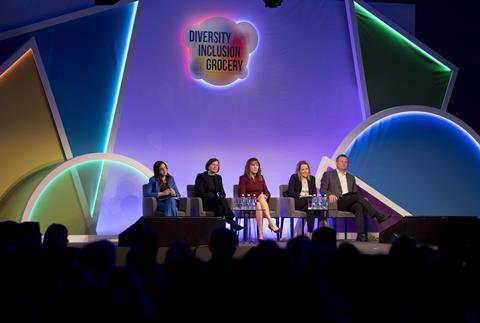
For proof of the ongoing interest in diversity and inclusion, look no further than the GroceryAid programme. Its October event – D&I in Grocery Live – has already sold more than 900 tickets.
This event forms just part of its year-long programme, which also includes a calendar of lunch-and-learn sessions and a mentoring scheme.
So far, 38 businesses have signed up and sponsors include names such as Amazon, Accolade Wines, Bakkavor, Coca-Cola European Partners, Tesco, Mondelez, Weetabix and Kellogg’s.
GroceryAid hails this as proof that Covid hasn’t dampened interest in diversity and inclusion. “The pandemic may have stalled activity initially but we’re making good progress and continue to adapt as our ways of working change, utilising new features such as our online portal and private LinkedIn group ‘The Learning Lounge’, which allow sponsors to connect and share resources virtually,” says fundraising director Jane Hill.
Sponsors have named this collaboration as one of the biggest benefits. Bakkavor’s chief people officer Donna-Maria Lee says “the power of collectively working together could make a real difference”. And Weetabix D&I lead Danny Singh cites the benefits of “sharing that best practice and hearing about work other businesses are doing”.
D&I in Grocery Live will run on 14 October at Wembley Stadium. Book your ticket at diversityingrocery.co.uk.








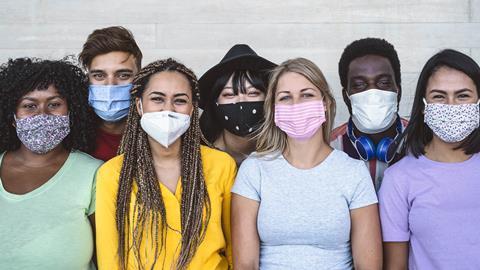





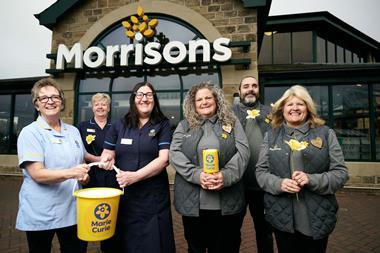
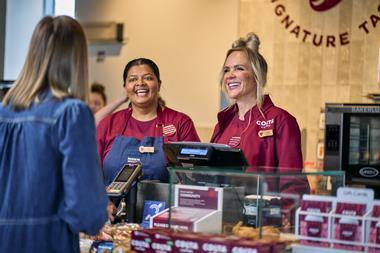
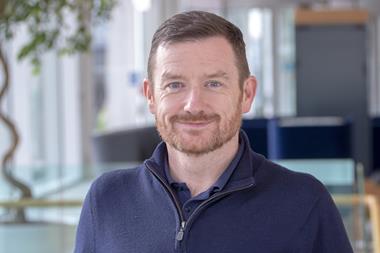
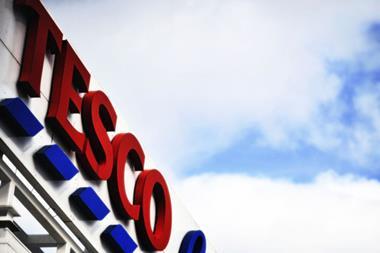




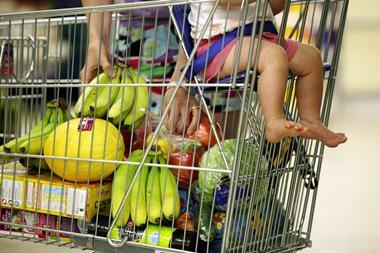


No comments yet